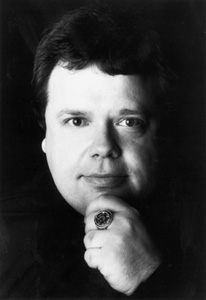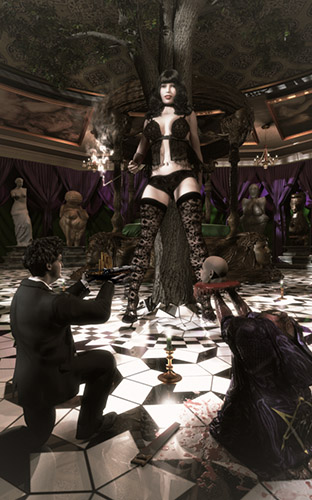 We’re still working on a new podcast. Why not come see me live? Khaos in Kansas is a one of kind festival devoted to chaos magick. It is a weekend long camping event filled with workshops and rituals. I will be doing workshop/rituals on invocation, and the Gutter Bible. This is a unique event, the only multi-day festival devoted to chaos magick. It’s being held at the Gaia Retreat Center, about 30 miles outside Kansas City, KS. Who says we don’t get good things in the Midwest?
We’re still working on a new podcast. Why not come see me live? Khaos in Kansas is a one of kind festival devoted to chaos magick. It is a weekend long camping event filled with workshops and rituals. I will be doing workshop/rituals on invocation, and the Gutter Bible. This is a unique event, the only multi-day festival devoted to chaos magick. It’s being held at the Gaia Retreat Center, about 30 miles outside Kansas City, KS. Who says we don’t get good things in the Midwest?
Category: Uncategorized
Scroll of Thoth Press
For some time I’ve been thinking about writing books about magick. I’ve come to the conclusion that I don’t have enough experience and depth of knowledge to carry an entire book. What I do have, however, is multiple years of experience as an editor, producer, and distributor of fanzines, magazines, books, and ebooks. Through my podcast and my blogs, I have a way to reach a substantial audience for esoteric works. So it recently occurred to me, why not become a publisher?
There are a lot of esoteric book publishers out there, but I haven’t seen many that fit a certain niche. I want to buck the trend of making expensive and hard to get talismanic books. It’s not that I don’t love those tomes, but I see a need for giving a voice to some of the up-and-coming practitioners who may not be able to draw an audience to justify those kinds of books. Also, I see a desire for more books that are not directed at beginners and are accessible and affordable.
This is an open call to all practitioners with a desire to share their work.
Let’s get the sticky part out of the way first. As a writer, I am a strong believer that content producers should get paid. But we all know that esoteric book publishing is a cottage industry. I have the means in place to get the books to market, that costs more time than money. I don’t have the means to pay an advance. What I can offer is royalties based on sales. I am taking 20% off the top for the work that goes into production and distribution. After that, contributors will be paid on a 90 day cycle, earning a percentage of the gross sales based on the length of their contribution.
Example:
If we publish a book on November 1st, your first payment would be January 28th, and you would receive a payment every 90 days after that for as long as the book sells. If the book’s total gross sales are $200, I would get $40 and the rest would be divided amongst the contributors. From a book that is 80,000 words, you wrote a section that was 15,000. That’s 18.6% and you would get 18.6% of $160 ($29.76) in your first 90 days.
Nobody will be getting rich from this but it’s the fairest way I can think of to make sure everyone gets paid. Reports from distribution channels will be included with payments so you can verify the numbers. Introductions, acknowledgements, forwards, and appendices will not be included towards word count.
With that out of the way, here are the subjects I would like to cover first.
Activist Magick
For this project I’m looking for contributions about using magick for social justice and political causes. It could include essays in the history of activist magick, basic principles, organizations, and magical rituals or operations that further causes. Please query before September 1st. Final submissions must be complete by October 18th, with a target publication date of December 1st.
Aeonics
This will be a collection of essays about belief in aeonics and their effect on magical systems. I’m especially interested in contributions that concern alternative aeonic systems, but well written examinations of Thelemic or other popular aeonic schemes would be welcome. I also want to see how aeonic belief directly effects actual magick being performed. Please query by October 1st. Final submissions must be complete by November 15th, with a target publication day of February 1st, 2015.
Query
To query, send an email to james at scrollofthoth dot com. For both books, I’m looking for contributions 3,000 to 15,000 words in length, with a target total word count for the book between 70,000-85,000 words. Your query should be a basic outline of your proposed contribution and be at least 500 words. The query also serves as your writing sample, so be mindful of the quality of the writing itself.
Promotion
No one sells books without promotion. All authors would be expected to promote the books on their own social media and other outlets. Authors are also required to produce one, short (at least 500 words) related blog post for the Scroll of Thoth website, and appear as guests on the Scroll of Thoth podcast. I’m sure you can see how this would be beneficial to all involved.
I’m extremely excited about this project and looking forward to the submissions people send in. I hope that authors and practitioners see this as an excellent way to get started in publishing and advance their own magick.
Review – EPoCh: The Esotericon and Portals of Chaos by Peter J. Carroll and Matt Kaybryn
 I’m jumping on a bandwagon with this review. Others have already spoken out on the quality of both the writing and the production of the Epoch, but I feel a certain obligation to add my thoughts for many reasons. For starters, a new book by Peter J. Carroll always makes waves through the chaos magick continuum, and we would be fools not to give it the coverage it deserves. Also, Mr. Carroll was gracious enough to give us an interview before the release, and it seems only right to tell people about the book now that it has arrived. Especially since the creators have taken the brave stance of not releasing the book on Amazon. They felt that Amazon’s demands were unjustifiable and they don’t appreciate the company’s dodgy business practices. Though I sell on Amazon myself, I empathize with those beliefs. So without the Amazon juggernaut to facilitate distribution, more word of mouth is required. Last, I am just a huge fan of Peter J. Carroll and I’m just too damn excited not to share.
I’m jumping on a bandwagon with this review. Others have already spoken out on the quality of both the writing and the production of the Epoch, but I feel a certain obligation to add my thoughts for many reasons. For starters, a new book by Peter J. Carroll always makes waves through the chaos magick continuum, and we would be fools not to give it the coverage it deserves. Also, Mr. Carroll was gracious enough to give us an interview before the release, and it seems only right to tell people about the book now that it has arrived. Especially since the creators have taken the brave stance of not releasing the book on Amazon. They felt that Amazon’s demands were unjustifiable and they don’t appreciate the company’s dodgy business practices. Though I sell on Amazon myself, I empathize with those beliefs. So without the Amazon juggernaut to facilitate distribution, more word of mouth is required. Last, I am just a huge fan of Peter J. Carroll and I’m just too damn excited not to share.
The Epoch consists of The Esotericon—a 200 page, 11 in x 9 in, hardbound book, lavishly illustrated in full color. Its workmanship reminded me of some of the high-end RPG books on the market by folks like Paizo Publishing and Onyx Path. My only beef with the construction is the three column format laid out landscape, at times makes the book difficult to handle. Though I suppose it does give the book more gravity. I myself would have appreciated a PDF to accompany each purchase for reference purposes, but I understand why the creators would be shy on that idea. The second part of the Epoch is the Portals of Chaos cards illustrated by Matt Kaybryn. The cards are much larger than any card set I’ve seen before, each one 9 in x 5 3/4 in. While some decried the use of computer artwork on the cards, it is obvious to me that the style was intentional. Computer created art does not look that way these days unless someone is doing it deliberately. Each card is an amazing rendition of a theme, be it a god, element, or elder being. The cards seem flimsy, but they can withstand some wear. I spilled wax on my Thoth card and it came right off without damaging the card. You’re going to want to start looking for some kind of case for your cards right away. I am thinking of hollowing out a book for the purpose.
The first chapter of Esotericon lays out Peter J. Carroll’s history of magick from Antiquity to H.P. Lovecraft. It includes his personal system of Aeonics, which is the only part I take exception to, partly because I am probably too wrapped up in my own, and also by necessity, Aeonics paints large swaths of history with a broad brush, which by its nature obscures the nuanced truth.
I did find fascinating his idea that we are moving from a Platonic Pagan-Monotheist paradigm, loosely put, looking for god from without, to a Quantum Neo-Pagan paradigm that looks for god from within.
The second part of the book describes a totally new system of correspondences called Chaobala. For someone like myself who has never felt attracted to traditional Kabalah, this is a godsend. With a masterful hand, Peter Carroll sets up a path of metaphysical understanding working up from the classic Aristotlian elements, through Baphomet as a symbol of universal life, through a range of god-forms both Western and a few Eastern, to at last end up at the Lovecraftian Elder Gods, used as symbols for humanity’s new existential, cosmic perspective, as we stand ready to use our new god-like knowledge to take our place amongst the stars or totally annihilate each other.
This is where the cards come in. While they can be used for divination, they are designed for use as altar pieces for evocation and invocation of the elements, gods, and elder beings. It can be seem as akin to traveling up the Tree of Life. A magician can work their way through each invocation, learning about themselves, the many parts of their psyche, and their own ability.
The last part of the book contains Peter J. Carroll’s own Necronomicon. Unlike the versions that have gone before, the author does not feel a need to make a slavish pseudo-reproduction of the fictional book. Nor does he write a modern goetia with the names cut and paste from Lovecraft’s Mythos. This is a totally new grimoire, which approaches the material in a thematic sense. Carroll points out why the Mythos have been so appealing to readers, and especially magicians, for years. Though he’s not the first to call Lovecraft’s creation a mythology for atheists, he takes that idea and applies it to a system that appeals to the modern chaos magician. It is also blessedly detailed, with full instructions on creating magical tools and the incantations for the principle deities in the system.
Without a doubt the Epoch will have great influence on the chaos magick paradigm and modern magick in general for years to come. I think every magician, even if they have their own correspondences, should examine the Chaobola system for its elegance and breadth.
 In the UK and Europe, purchase the Epoch directly from Arcanorium College for 30 pound. In the US, it is being distributed by Weiser Antiquarian for 60 dollars, and you save considerably on the postage. My copy from Weiser came signed and contained both a postcard from Arcanorium and a book mark. It is my understanding that Weiser has sold through its first shipment and subsequent lots may or may not have these features.
In the UK and Europe, purchase the Epoch directly from Arcanorium College for 30 pound. In the US, it is being distributed by Weiser Antiquarian for 60 dollars, and you save considerably on the postage. My copy from Weiser came signed and contained both a postcard from Arcanorium and a book mark. It is my understanding that Weiser has sold through its first shipment and subsequent lots may or may not have these features.
Interview with Peter J. Carroll
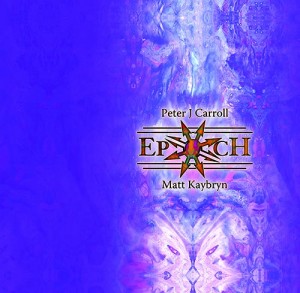 Anyone who has been practicing magick in the last twenty-five years shouldn’t need to be told who Peter J. Carroll is. Along with Austin Osman Spare, Ray Sherwin, and Phil Hine, Peter Carroll is considered one of the founders of the chaos magick movement. His book, Liber Null, is an occult bestseller and all of his subsequent writings: Liber Kaos, Psybermagick, The Apophenion, and The Octavo, have been influential in their own right. Pope Pete (retired) was also the founder of the Illuminates of Thanateros, AKA The Pact, the premier chaos magick organization.
Anyone who has been practicing magick in the last twenty-five years shouldn’t need to be told who Peter J. Carroll is. Along with Austin Osman Spare, Ray Sherwin, and Phil Hine, Peter Carroll is considered one of the founders of the chaos magick movement. His book, Liber Null, is an occult bestseller and all of his subsequent writings: Liber Kaos, Psybermagick, The Apophenion, and The Octavo, have been influential in their own right. Pope Pete (retired) was also the founder of the Illuminates of Thanateros, AKA The Pact, the premier chaos magick organization.
These days he is Chancellor of Arcanorium College, an online magical university, and has recently completed a new book, Epoch. To accompany the Epoch, Pete enlisted the aid of artist Matt Kabryn to create the Portals of Chaos cards. The fifty-four card deck, not a simple re-hash of the tarot, can be used more various magical works besides divination.
For those who remember the first Scroll of Thoth podcast, Peter Carroll has had a profound effect on my own career as a magician. His lecture, “The Philosophy and Practice of Magick,” opened my eyes, to a view of magick that transcends Thelema, traditional ritual magick, and shamanism.
That’s why it’s my distinct privilege to have Peter J. Carroll answer some questions on his magical career and upcoming work.
SoT: Liber Null has become the foundation for a world-spanning magical order and an entire movement within the magical subculture. What were your expectations when you first wrote it?
Pete: It seemed to me the next logical step in the development of magic; after all we inhabit an era when the classical ‘spirit’ paradigm and even the nineteenth century ‘energy’ paradigm appear increasingly inadequate to model esoteric phenomena, and the new cross-cultural eclecticism demands that we take into account esoteric ideas from other cultures and theoretical ideas from other disciplines such as science and psychology. I had no expectations other than to organize and upgrade my own ideas at first but it didn’t surprise me that many others wanted to go in a similar direction.
SoT: Given that you no longer hold a leadership position within the Illuminates of Thanateros, are you happy with the current state of The Pact and what do you think they can do more of?
Pete: I remain in occasional contact. I made my position clear in this paper: – http://www.specularium.org/index.php?option=com_blog&view=comments&pid=110&Itemid=137
I think a separation of magical and administrative grades remains overdue.
SoT: On your blog, Specularium, you make clear your opinions on the European Union and the nanny state in general. What sort of governance do you think Western nations should be moving towards and is it anything close to the Chaotopia you describe in Psybermagick?
Pete: The EU has a profoundly undemocratic structure and a sham parliament with no real power. Thus it operates as a Synarchy of the European Political Classes with scant regard for the wishes of the population. It uses the tactics of the nanny state to introduce controls over everything it possibly can to give itself arbitrary power, and thus it tends towards a species of legalistic totalitarianism. I do not want a uniform Europe presided over by a Synarchy of faceless bureaucrats hiding behind non-entity figureheads, none of whom do we elect and none of whom can we apparently sack. The strength of Europe lies in its diversity, the EU will remain permanently dysfunctional unless it can force everyone to live and work exactly like Germans.
The current sham European parliament functions more like the British House of Lords, merely as a consultative and rubber stamping organization. For a start I’d like to replace that with an assembly of randomly selected citizens rather than career politicians, (and the same for the House of Lords actually).
SoT: In the Octavo, you introduce the concept of the Knights of Chaos, a pro-active magical order dedicated to environmentalism. What are some of the things the Knights of Chaos have done so far and are there any plans to organize them beyond the classes at Arcanorium College?
Pete: The KoC fights an uphill battle against almost impossible odds using rather strange magical techniques. KoC agents buried a servitor in the centre of St Peter’ Square in the Vatican a while ago and the mad old fool of a pope resigned shortly afterwards and became replaced with what seems a dream candidate, a good guy for a change. Iran’s new front man also seems much more reasonable than the last one although the hardline religious hierarchy behind him still remains a barrier to progress. We also conjured to impede arctic oil drilling, with gratifying results. We currently consider releasing selected target data for future campaigns to allied esoteric groups.
SoT: What are your duties as Chancellor of Arcanorium College and why do you believe it would be beneficial for a practicing magician to enroll?
Pete: I look in almost every day and monitor the courses, projects, and discussions in progress and attend to the responses of those doing the Bachelor of Magic degree course. It provides a forum where magicians of all levels of knowledge and experience can come together and discuss their ideas and results and inspirations.
SoT: You call your upcoming book, Epoch, a “culmination of 40 years of magical experience.” What are some of the major changes in your personal practice since Liber Null?
Pete: Having achieved many of my life’s aims in business and family matters I’m doing less results magic for personal objectives these days and more for friends and for what you might call higher causes in the realms of ecology and the survival of civilization and the human race.
SoT: According to the content listings, you dedicated an entire section of Epoch to magic based on the Lovecraftian Mythos. For what types of magick do you find the Mythos paradigm useful and what are some of your results?
Pete: I’ve increasingly used it to augment my exploration of the wilder shores of knowledge. In cosmology I’ve tended to Invoke Yog-Sothoth before meditation on the stranger implications of emerging data. The rather radical equation ![]() for the internal radius of a hypersphere emerged recently, it neatly removes all singularities from the universe at a stroke, perhaps it will prove of use.
for the internal radius of a hypersphere emerged recently, it neatly removes all singularities from the universe at a stroke, perhaps it will prove of use.
SoT: Along with Epoch you are also releasing the Portals of Chaos cards. You have already said that the cards can be useful for much more than divination. Can you give some specific examples of how the cards might be used in various magical workings?
Pete: They also prove very useful for evocation and invocation because they all depict various god-forms and parts of the human psyche, and from the invocations you can proceed to works of illumination or enchantment. We have made the cards large enough to function as altarpieces or icons.
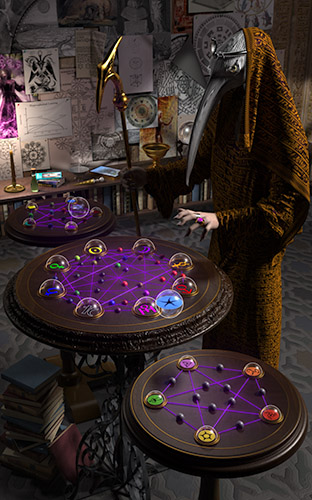 SoT: What are some of the most spectacular and beneficial results you have achieved and what do you think was an important element in achieving those results?
SoT: What are some of the most spectacular and beneficial results you have achieved and what do you think was an important element in achieving those results?
Pete: I’ve only ever done a small handful of ‘impossible’ things by magic in my entire career, and then more or less accidentally, I mean things like materializing objects or telekinesis, I cannot do such things at will. However my belief in magic has allowed me to attempt all sorts of lesser but still improbable and difficult things and to get probability moving in a favorable direction.
SoT: For those of us unable to attend the Occult Conference in Glastonbury what is the best way to obtain a copy of Epoch and the Portals of Chaos?
If we don’t have enough copies for those who want one on the day, Arcanorium College will provide a full online purchase and delivery service, and we shall also distribute via selected bookshops and booksellers.
Artwork by Matt Kaybryn from the Portals of Chaos, the Babalon and Thoth cards respectively.
Story
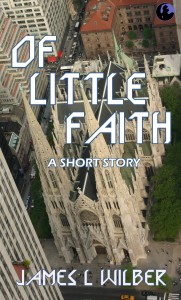 In the last podcast, I mentioned a short story that I wrote about Odin returning to Earth. I think it will be of interest to those who wonder if the gods have changed along with our culture. To give you a sample of my fiction, I’m offering it as a free download to everyone on Kobo, and through the Scroll of Thoth mailing list.
In the last podcast, I mentioned a short story that I wrote about Odin returning to Earth. I think it will be of interest to those who wonder if the gods have changed along with our culture. To give you a sample of my fiction, I’m offering it as a free download to everyone on Kobo, and through the Scroll of Thoth mailing list.
The old gods are returning, or have they always been here?
Odin wakes to the call of a dying warrior, crying out to be taken to Valhalla. Roused from his centuries of slumber, he wanders the Earth until he finds gods old and new. Do they have the answers he seeks? How does an ancient god of war find his place in the modern world?
A musing on the nature of religion and spirituality. We may no longer need a patriarch, but do we need to rediscover our divinities?
Magic-K
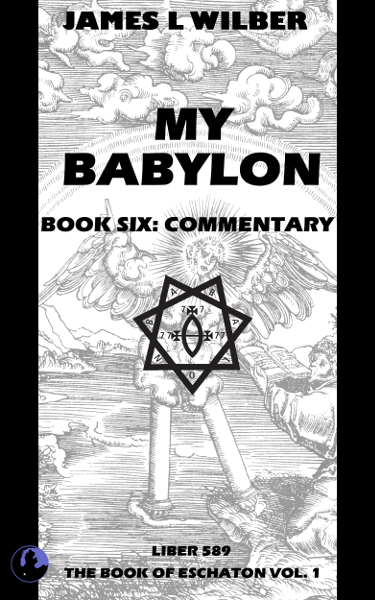 The following is an excerpt from My Babylon – Book Six: Commentary, something I am putting together to explain the esoteric content to the uninitiated readers. You may have heard some of this griping from me before. Book Six will also contain some of my posts from Scroll of Thoth. So in fairness, if you are a reader of this blog, just sign up for the mailing list and I will send you a free copy of Book Six when it comes out.
The following is an excerpt from My Babylon – Book Six: Commentary, something I am putting together to explain the esoteric content to the uninitiated readers. You may have heard some of this griping from me before. Book Six will also contain some of my posts from Scroll of Thoth. So in fairness, if you are a reader of this blog, just sign up for the mailing list and I will send you a free copy of Book Six when it comes out.
1 5 6
I have a love-hate relationship with Aleister Crowley. I even resent the fact you can’t even talk about magick without talking about Uncle Al. He’s just that influential, and a force in modern culture too, but most people don’t realize it. It’s safe to say that the New Age movement wouldn’t look anything like it does now without Uncle Al. He’s the evil, spooky, boogie-man, hiding under your nice safe bed of astrology, crystals, and Angelology. No, I did not make that word up.
You know the cover to the Beatles’ Sgt Pepper’s album? The one with all the famous people on the cover? Top row, second one in from the left, the creepy looking bald guy, that’s Uncle Al. He’s known as a drinking, fornicating, ego-monster of mythical proportions. He referred to himself as Therion, which in Greek means, “beast,” meaning The Beast, the one from Revelations with the triple sixes. He created a religion called Thelema, in which one of the major deities is Babalon. Getting the picture? In essence, My Babylon, is a Thelemic fairy tale. A fantasy built on Uncle Al’s worldview.
I still hate the fucker most days.
I have a love-hate relationship with his followers too. Does that come through with Ezra? They are some of the most intelligent, articulate, fun-to-be-around people I’ve ever met. Until they start talking about Master Therion. Then it’s all, “Aleister Crowely” this, and “Crowley” that, and “He was such a genius,” and on and on until you want to slap them and scream, “The religion is supposed to me about individualism you fucking sheep!” But I still love hanging out with them.
Was Crowley a genius? That’s the question that turns me into a dog chasing his own tail. On one hand, he said some massively stupid shit, even for a man of his era (1875-1947). Like how the word yoga has Latin roots. Or using human sacrifice as a euphemism for masturbation. In fact, a lot of his failings in scholarship and logic come from his intense need to see everything as interconnected, even when it’s not. He also stole a lot of his material, much it of it from the Golden Dawn, a somewhat infamous magical order during the Victorian Age.
On the other hand, the way he mixed Western magical systems with Eastern ones was astounding. Magick had been derided in the West, driven underground. With the link between teacher and student often lost, much of the ancient wisdom and work of later alchemists was misunderstood. By drawing the parallels between Eastern mysticism and Western occultism, he reestablished the meanings of the rituals.
But I still find it hard not to hate him. His ego got in the way of everything, especially later in life. The ritual that Ezra does in Book One, The Star Ruby, originally instructed the magician to face East, pretty standard procedure when it comes to magick rituals, the directions have meaning. When he re-wrote the ritual years later, the instructions changed, telling the practitioner to face towards Crowley’s house in Scotland, like it was some kind of fucking Mecca. How’s that for being full of yourself?
In some ways, Mike is my rebellion against Crowley. He’s still the Beast, still an asshole, but lacking in the kind of ego Crowley had. Mike has no desire to insert himself into anyone else’s magick. He has no need to be adored by the masses. Just a desperate need to be adored on a personal level.
It was Uncle Al who started spelling magick with a K on the end. He did this to differentiate it from the stage magic of the illusionists. Important if you notice that Crowley was a contemporary of Harry Houdini. Also infuriatingly far-sighted, practically prophetic, as you yield very different results if you search Google with magic rather than magick.
Crowley also provides what has come to be the universally accepted definition of magick. “Magick is the Science and Art of causing Change to occur in conformity with Will.” Different magical styles have developed since Crowley’s time that tweak that definition a bit, but no one can deny his influence.
Like the author, Mike is a practitioner of chaos magick. This does not mean I use deterministic or random mathematics in practices, though some chaos magicians do. This does not mean I am a Discordian, though many of my fellows are, and I respect them. You could probably get as many different definitions of chaos magick as there are chaos magicians. Kind of the point really. Some would even tell you that chaos magick as a “tradition” no longer exists, because all modern magicians have become chaos magicians to a certain extent. It’s hard to argue with that.
In my view, the core of chaos magick is the ability to use belief as a tool. A chaos magician can shift from one paradigm to another without pause, using whichever worldview currently suits their needs. Legio may be the best example of this. While he at times seems to totally buy the Christian perspective, as an antagonist, yet at the same time worships pagan gods. For a chaos magician, there need be no conflict. There can be a one-and-only-all-powerful GOD, and at the same time, gods, who are no less important. He recognizes that the culture he participates in is dominated by Christian beliefs, and that if he wants to influence that culture on a magical level, he must believe in that mythology.
One of the founder’s of chaos magick, quoted often in My Babylon, is Peter J. Carroll. The saying often used by Carroll as the chaos magician’s creed: “nothing is true, everything is permitted,” comes from Nietzche, who attributed it to the original Ḥashshāshīns of Middle East, active during the time of the Crusades. If taken as truth, it’s meant to liberate the magus and open their mind to all possibilities. It is not an excuse for licentiousness, as it is often portrayed. Though deviancy is sometimes encouraged as a means to break down one’s reservations.
Crowley’s supporters claim he was the first chaos magician, the first to start combining traditions as he saw fit. That’s not entirely true, but he did make combining traditions fashionable. There have been reactions against it, specifically from the re-constructionist movements in modern paganism. Those people want to bring back that really old time religion. I don’t see it happening. It will never be popular because we have moved so far past the culture that created those religions. We are too global now. The Crowley/chaos magicians rule the day now. Even the established religions are borrowing from each other. No one blinks an eye when a white guy in America calls himself a Buddhist or a Muslim. Some call this “cultural appropriation” as if it’s some kind of theft. That’s a subject for another book (hint).
Demons
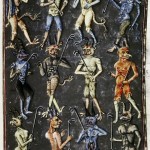 The Lemegeton, also known as the Lesser Key of Solomon, has been the most popular book on goetic magick for a few centuries now. It gives specific instructions on how to summon demons, sometimes translated daemons, and bend them to your will. It claims to be the ritual used by King Solomon, though no historical evidence can be found of the book before the 16th century.
The Lemegeton, also known as the Lesser Key of Solomon, has been the most popular book on goetic magick for a few centuries now. It gives specific instructions on how to summon demons, sometimes translated daemons, and bend them to your will. It claims to be the ritual used by King Solomon, though no historical evidence can be found of the book before the 16th century.
On the list of seventy-demons are: Bael, obviously the Cannite deity Baal, who gave ancient Isrealites much consternation. Astaroth, believed to be taken from the goddess Astarte. The Phenex, sometimes translated Phoenix, yes the mythical bird, not the town in Arizona.
It would seem in their rush to portray the old pagan competition as the enemy, many entities that others would consider gods made the list. Hence the term, to demonize. So when a magician works with the entities in the Ars Goetia, what are they summoning? If you ask me, it’s all about point of view.
It’s obvious that the writer or writers of the Lemegeton meant to portray them as evil, nasty, infernal beings. Some wonder why churchmen, who were the ones who disseminated and used the book, would summon their enemies. The idea was, if you could put them to work for you, you could make them do God’s work.
Many modern magicians work with the goetia. Some are iconoclasts looking for a thrill. Nothing wrong with that. It’s good for people to be breaking down the cultural barriers in their minds, letting go of what they believe is possible and impossible. But more serious magicians work with it too, and they make no bones about it, what they are summoning are demons.
What is a demon? For me, a demon is an entity that appeals to the base side of my nature. They encourage me to be slothful, to rage when I should be calm, to pontificate when I should keep silent. They can be useful if done in moderation, but can easily take over your life and distract you from doing the things you should be doing. In the psychological model of magick, they are your shadow, a primitive ego monster, but also the drive for all creativity. Sounds pretty useful, aye?
There’s, of course, a reason why such magick is labeled handle with care. One of these creatures running amok in your life can cause serious damage. Oh yeah, it has happened to me. Some magicians say you should successfully perform the Abramelin operation, the quest to gain your Holy Guardian Angel, before you even think about using goetia. I’m not so cautious, but knowing what these things could do, wouldn’t it be wise to develop some self-defense? I recommend knowing and practicing a solid banishing ritual. You can read mine by signing up for the mailing list. But I’m not going to give you a big list of preparation you MUST do before summoning. I’m leaving that up to you.
I’m not going to tell you how to treat these enteties. I have had success treating them with a respectful firmness. But you can follow the Lemegeton, and act like they’re your bitch if you want.
You’re a big-person now. You can handle it.
Or maybe you can’t. One thing I have found most useful about goetia is that it’s going to teach you exactly how far you have come as a magician. In my experience, you will get some great results, or you will fuck-up spectacularly, or both. I have yet to see someone using it fall somewhere in between. In some ways, goetia is a magician’s license to make mistakes. The only way we learn.
Peter Grey, author of The Red Goddess says, “Real magick has no safety net.” So go ahead, step out on the wire. Falling is just like flying, at least for a couple of seconds.
Paganus
 Pagan comes from the Latin word paganus, meaning country dweller or rustic. It was meant to be a slur. To call someone a pagan approximates to calling them a redneck. I’m all for embracing the things that cause you pain. As Tyrion says, “Never forget what you are. The rest of the world will not. Wear it like armor, and it can never be used to hurt you.” That being said, I ain’t country folk.
Pagan comes from the Latin word paganus, meaning country dweller or rustic. It was meant to be a slur. To call someone a pagan approximates to calling them a redneck. I’m all for embracing the things that cause you pain. As Tyrion says, “Never forget what you are. The rest of the world will not. Wear it like armor, and it can never be used to hurt you.” That being said, I ain’t country folk.
I’ve lived in the country. Rode an hour on a bus to get to the nearest school. I like the country. Enjoy being there, and the people that live in the country. But it’s just not me. I’m a city dweller. My greatest lament in being a pagan is that it seems every large event requires camping. I do not camp. Why can’t they hold those things in nice hotels?
I was recently asked, what religion do I follow? My answer was a mix of neo-paganism and Thelema. But even my paganism is a different shade than most. The gods I revere, Thoth, and Babalon, are not nature gods. They are city gods. One is an intellectual deity, the other, a prostitute. While sex for money came along well before cities, institutionalized prostitution came with the throwing together of the masses.
A look at the ancient near east deities, of which I include Babalon as a modern incarnation of Inanna, shows a group of gods much different in character than the Celtic and northern European pantheons favored by most neo-pagans. They come from cultures that were creating civilizations based on the city. It makes them no better or worse than gods coming from cultures without major settlements or written language, but it does make them, in my opinion, better suited to modern life.
This does leave me with me with some sticky problems. Kind of like how Thelema takes everything and smashes it into Kabbalah, neo-paganism takes a pantheon and then smashes it into the Wheel of the Year. It doesn’t always fit. Why would someone who worships the Kemetic deities use holidays based on a European agricultural cycle? Wouldn’t they celebrate the flooding of the Nile? And how does the flooding of the Nile matter to them now?
One answer could be that no matter what, those cycles do affect us, living in country or city. Also, those cycles exist in the microcosm, reflected in the life-cycle of human beings. But that only goes so far. I personally celebrate the Festival of Thoth on August 6th. But the rising of the Dog Star doesn’t mean much me either, not being an astronomer.
How do we adapt our practices to the life we’re living today? Do we throw a party when they switch over from the summer to the winter mix of gasoline and the prices go down? That’s a shitty idea. But I do think it’s important to reflect on the passing phases. It gives us mindfulness and perspective.
For now I guess, the Wheel of the Year will have to do. I believe living in cities is important. Despite the pollution they create, they really are the way for masses of people to live with a minimal footprint. A city built right is the natural environment for humans. Or at least some of us. Who can deny how the mix of cultures in our urban areas have created art and innovation? We can do better though. Just like morality, environmentalism doesn’t have to be a part of your religion in order to practice it.
Don’t forget to sign up for our mailing list to get more Scroll of Thoth in your inbox, including my own banishing ritual. Also, help out the blog by checking out our Amazon recommendations and using the Amazon search window whenever you make a purchase.
Updates
If you visit on a regular basis, you may have noticed some changes. My recent spate of unemployment has left me more time to tweak the site.
I know I owe you a post on my own personal banishing ritual, but I’m going to do it a little differently. Everyone who signs up for our mailing list will get the banishing ritual in their inbox. Not that I think it’s the most awesome banishing ever. Not that I think it will get rid of all the demons on your block and clear up your case of herpes. But I do believe it is a good example of taking the basic form of the modern hermetic banishing ritual, and how to change it to meet personal needs. I don’t expect anyone to replicate it, but I think it is something to get ideas from. Making it yourself is always best, right? So sign up for Hieroglyphs and get some extras in your email.
I will be posting a regular update tomorrow, and a new Roll of Thoth on Friday.
You may also have noticed that I’ve monetized the site. If you purchase something off our Amazon suggestions, or use our Amazon search box to find stuff you want, we get a small cut. I do this with a heavy heart. I don’t believe in performing magick for money, but I also believe we provide some interesting content. I’m one step away from adding a paypal button so I can do some begging. Let me know if you think it detracts from the site. I truly value your opinion.
To contact us, you can always send email to james (a) scrollofthoth.com. We also have a new phone number for you to leave comments and questions: 317-296-3247. We may even play your message on the air.
Thank you for visiting. Don’t forget to leave reviews for the podcast on iTunes and other podcast sites. It helps us bring you even more.
